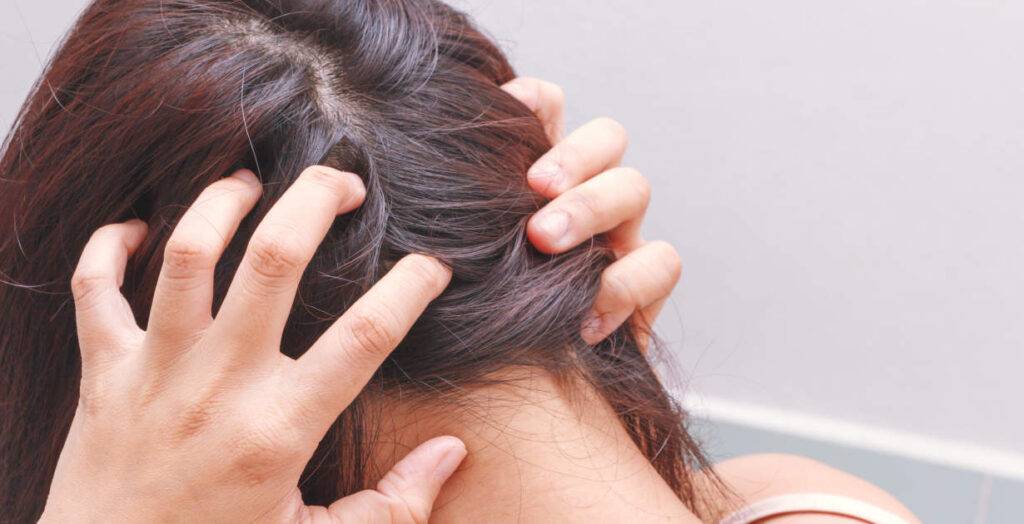Skip harsh shampoos or ointments and try some natural solutions to ward off the fungal infection.
If your scalp has been itching uncontrollably with flaking skin and pus-filled boils, you may want to get yourself checked for scalp fungus.
The dead skin cells of your scalp may lead to the build-up of dirt and debris when they combine with oil and pollutants.
These not only clog your hair follicles, leading to folliculitis, but also cause fungal infections.

Lack of proper hair hygiene, infrequent washing, excess oiling or combing your hair regularly, or using harsh chemicals and dyes on your hair can increase the risk of a fungal scalp infection.
Continue reading to learn more about fungal scalp infections and some natural home treatments for the same.
What Is A Fungal Scalp Infection?
A scalp fungus infection, as the term suggests, is a fungal infection on the scalp. Certain types of harmless fungi exist on your skin.
When provided with appropriate environmental conditions, these fungi can multiply and cause an infection.
Fungal infections can occur anywhere on or inside the body. But they are more common on the feet, fingernails, and scalp.
Scalp fungal inflammation weakens the hair and could lead to hair breakage and partial alopecia or hair loss patches. Let’s take a look at the causes.
What Causes A Fungal Infection On The Scalp?
Candida is one of the most common types of fungus known to trigger infections. There are more than 20 species of Candida that have been identified. However, most Candida infections are caused by Candida albicans.
More than 1000 people in the US seem to die every year due to candida infection. According to the data, approximately 5,389 deaths have occurred due to this fungal infection in the United States during 2018–2021.
Some factors that can contribute to fungal growth on your skin and scalp are: